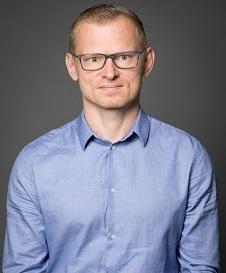DOE FUNDING WILL HELP RESEARCHERS CREATE NEW QUANTUM STATES OF MATTER

Andrej Singer, assistant professor of materials science and engineering and David Croll Sesquicentennial Faculty Fellow, will lead a three-year project funded by the Department of Energy’s Office of Science that will attempt to create new quantum states of matter.
The award is sponsored by the DOE’s Office of Basic Energy Sciences, under its “Research at the Frontiers of X-Ray Free Electron Laser, Ultrafast Chemistry and Materials Sciences” program. The Singer group’s project was one of 10 chosen for funding totaling $30 million.
The group’s proposal is titled “Engineering Interfaces and Defects in Heterostructures for Controlling the Properties of Non-Thermal Phases in Quantum Materials.” The objective of this research is to chemically and structurally control quantum states and their lifetimes following exposure to ultra-short laser bursts.
Investigators include Darrell Schlom, the Herbert Fisk Johnson Professor of Industrial Chemistry; Kyle Shen, professor of physics; Nicole Benedek, assistant professor of materials science and engineering; and John Harter, Ph.D. ’13, assistant professor of materials at the University of California, Santa Barbara. The group will receive about $2.73 million from the DOE for its research.
“We are incredibly excited and look forward to developing new ways of controlling quantum materials,” said Singer, who arrived at Cornell in fall 2017.
“Short light bursts can, for a brief time—a few trillionths of a second—induce extremely useful properties, including superconductivity,” he said. “Imagine making that property live longer, so we could use it in applications—this is precisely what we will work on. Our work could revolutionize how we design and build our future electronics.”
Harnessing emergent properties in quantum materials could lead to a range of advances, from energy harvesting and storage to next-generation electronics and magnetic devices. These unique properties are often short-lived, however; the Singer group’s research will focus on magnetic properties, metal-to-insulator transitions and possible light-induced superconductivity.
“Quantum materials are inherently complex,” Singer said. “Barely noticeable microscopic rearrangements can entirely change the functionality. X-ray free-electron lasers are vital for identifying the relevant puzzle pieces required for engineering artificial quantum materials.”
The goal of all 10 funded projects is to help speed discovery of new materials and chemical processes through better step-by-step observation and control of matter’s behavior at atomic and molecular scales.
“Discoveries in materials science and chemistry have long been critical drivers of technological innovation and economic growth,” U.S. Secretary of Energy Rick Perry said in a statement. “These projects will keep American scientists on the cutting edge of one of today’s most promising and potentially productive areas of research.”
By Tom Flieschman

